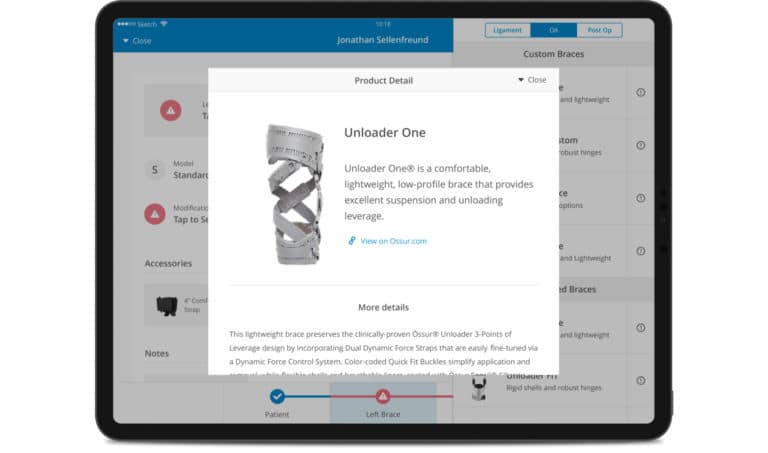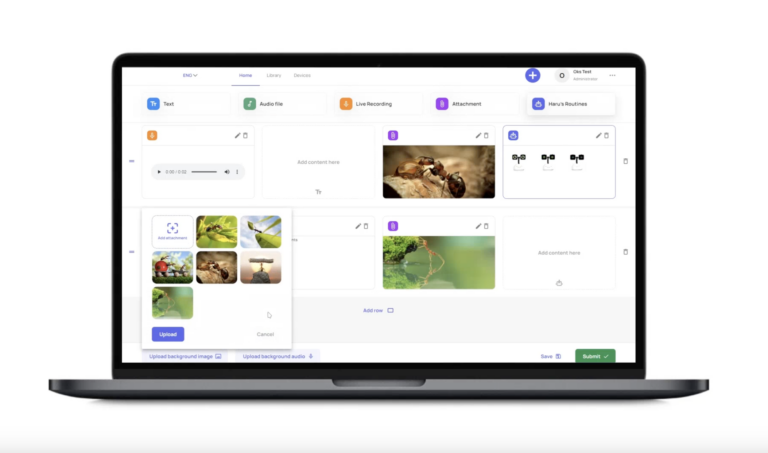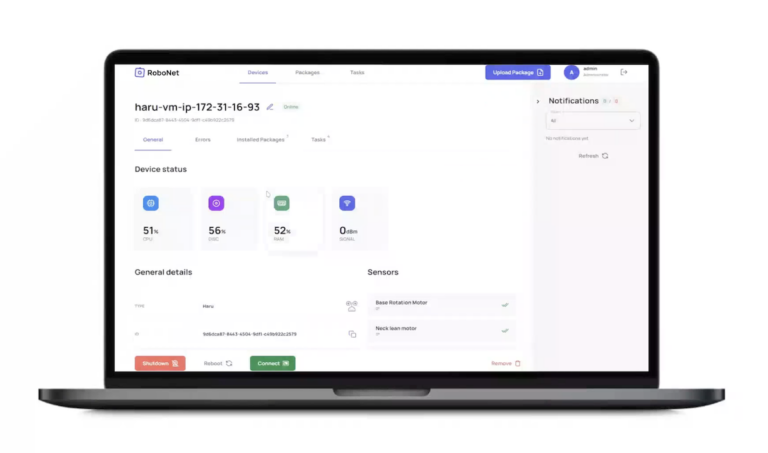Caryn Werner of KOYA Innovations Inc. Sits Down with Relevant to Share Her Journey of Building a Start-Up
CCO and Co-founder, Caryn Werner, of KOYA innovations inc. founded in 2018, sat down with Relevant, to share their mission of creating a business that can bring kindness, effortlessly being transported to one another in a world that is so desperately in need of more kind acts.
KOYA is an app that makes it easy to send video messages with gifts, such as payments for coffee, classes, or anything that would help bring joy to the receiver in an effortless way, making all sorts of paper gift cards outdated. KOYA was created in order to help people connect in more meaningful ways. Caryn’s story tells about how one family lunch turned into a mega brainstorming session that ended up changing the course of their lives and creating a successful startup, a family-run business. Caryn shares with us the idea behind KOYA, the challenges and advantages of setting up a family business, the difficulties of being a C-level female in Tech, and how Covid turned out to provide both pros and cons to their startup.
200+ companies from 25 countries outsourced software development to Relevant
We provide companies with senior tech talent and product development expertise to build world-class software. Let's talk about how we can help you.
Contact us
Caryn, a former international humanitarian photographer, from a family of entrepreneurs, had always been surrounded by the passion of creating something meaningful, and the challenge of creating it from the ground only added to the excitement. Due to her humanitarian work understands better than most the importance kindness can have and is having in the modern-day world and so KOYA is more than just a project but something she and the other founders really believe in.
Table of Contents
How did the KOYA journey begin?
KOYA is our family’s creation. My dad is a serial entrepreneur and innovator. And so growing up, my sister and I saw him non-stop innovate, bringing home different prototypes and hearing him talking about technology and how we could use it for good and how to do this whilst thinking about the future of tech, a world with technology in it. So it was super normal for me to be surrounded by this type of atmosphere and therefore be primed to create a startup. The thought of actually starting a business together as a family was, honestly quite a dream come true because it was so normal for us.
When we started KOYA, we actually started as a B 2 C company, as we all had prior commitments and constantly missed the really special events and so we tried to figure out ways to make it easier for people to show up when they couldn’t actually be there in person. My desk speciality is in geofence technology and time mapping, creative direction, and storytelling. Each and every one of us in the family has a vital role in bringing the company together.
The founding team took on an all-in approach, diving headfirst into the start-up adventure. Not too long after its foundation, the team managed to get off to a successful start, managing to attribute many users. The next challenge was really about how they could figure out how to create that all-important revenue.
We were repeatedly asked if we had a B2B version of our product, people wanted to use our product in their business, they could see that it was a more meaningful way of staying connected with their employees. So, whilst capturing the moment and adapting to the markets which wanted to use our service, we realised we had to pivot the business and turn to a more B2B model. Gifts, like KOYA, help people go through this unique experience for both their customers and employees alike. We like to say that we put the relational back in CRM.
What are the challenges in creating a family business?
You see each other strengths, but you also see each other’s weaknesses. You are so up close with one another, and so you’ve got to learn how to grow compassion for each other. And remember, we’re all human.
Caryn highlighted the pros of running a business, pointing out that, in her opinion, it is far less risky because you are really committed, not only to seeing each other thrive and make an impact in this world, but all equally committed to each other’s success.
I’m willing to do anything to see them succeed and vice versa – it’s definitely an advantage. There are, however, moments when it is tough. When you have those highs together, it is so fun but equally, come the lows together. Luckily, knowing each other so well, we are able to balance each other out.
What was the motivation for building KOYA?
Starting a startup was something in the pipeline for many years, but the moment the idea hit the paper was at a family celebration. Bringing the family together, with business heads around the table was sure to turn into something quite extraordinary. Family lunches always turned into a conversation about highlights of your past year, hopes and dreams for this next year, and turned out that for the coming year, our dream was to create our family business and this dream just took off and became a reality.
My dad was itching to start something from the ground, with his own hands and to really get into the process. Whilst being tasked with overseeing the future division of some of the biggest companies out there, he had the skills necessary to know how to get ahead and stay there. So a celebratory lunch turned into a huge brainstorming session with the stereotypical napkin and scribbles on it, and so was the idea of KOYA born.
How have these challenges really influenced what you’ve been doing?
I think Covid woke us up for what’s important in life. The world being connected is hugely important nowadays and for us a KOYA, this is a huge part of our mission. So previously, before Covid, when we first put our idea out there, people took an interest but not to the scale we wanted. As a society, the idea of staying connected hadn’t quite reached us yet. Once Covid came about, and people started experiencing loneliness, it hit home and people realised how valuable it is to stay connected.
We realised we needed connection as humans, it is a basic human need. So I think more and more people around the world realised that a product like KOYA made sense, seeing it more as a necessity rather than an app you have just for fun. We took all the stats on what causes loneliness, and what it generates, how depression or anxiety can be harmful. These stats really brought it home for people. They saw the need for a product like KOYA.
Covid gave KOYA the ability to start thinking about how technology must be utilized for meaningful connections with people and how it will be something that we can begin incorporating more into our daily habits and routines.
We are seeing so many companies put money aside for products that are helping them connect better with their employees and customers.
Now that Covid is becoming more manageable and people are starting to interact more in person, how do you see this having an effect on your business? Where do you go next? Right now we are just coming out of our private beta mode with a B2B product. So we already have a waiting list of over 2000 people ready to use our product.
How difficult was fundraising? And what kind of advice could you give to our readers?
Before Covid, we raised a ‘friends and family round’, and we honestly thought we’d have no problem raising money at all. Our plan was to start the process of fundraising once we had a live product. But in the beginning, people were hesitant because they saw one male and three females. Even with the modern-day push for diversity and inclusion, supporting 3 females was still a problem. So after numerous meetings and we realised either the terms weren’t good, or at this point, investors didn’t feel like the right aligned fit. So we stopped fundraising and didn’t take any additional outside funds.
During Covid, we tried to raise funds again, but yet again, we realised the time just wasn’t right. So we adapted and decided to put our heads down and just continue to develop our B2B product. Since the B2B product was generating revenue, it was preferred to continue to keep our equity and see our own revenue grow. Knowing that we would be in a better position to raise money later on, and hopefully, people would be able to see the value clearer.
My advice would be, whatever investors you find, make sure you are aligned with them and they are aligned with your vision. You’re literally getting in bed with someone. You’re in it for the long haul. You need to feel supported by them in order to build trust between you both. You need to know they have the wisdom and experience in your industry to open up future possibilities.
As a female in tech, have you had any difficulty or is the sphere pretty gender-equal?
I have been in countless meetings with my dad, virtually and in-person, and people’s response, I’d say nine times out of ten, Is that I am his assistant. There is some hesitation and there still needs to be some development in regards to how we approach female founders, how we support them, and recognise that they have so much to offer. I read a piece that said females generally won’t apply for jobs unless they feel they’re 98/99% qualified. Whereas their male counterparts would apply for jobs even if they were like, 60% qualified.
Men often have this attitude of ‘I’ll fake it till I make it, I’ll learn, I’ll grow on the job’. There’s also been so much oppression over the years, telling us we can’t do it. Our place is in the home and we are still trying to come out of that. So there’s a lack of confidence and a feeling that we have to be perfect, absolutely perfect in order to qualify for something.
What can females in tech do in order to take control?
I think it is really changing the narrative. So, individually, doing inner work, and to know you’re enough. I’m recreating those neural pathways in my mind, personally, and then just encouraging other women to do the same.
How do you approach outsourcing?
We’ve outsourced before and we’ve outsourced with people in different countries, both stateside and from other countries. I think the situation is somewhat similar to just the thought of women in business. When outsourcing you are looking for the best talent and not looking at where someone’s from. You look at their work. You try to see if they understand your vision and would they be a great team member.
Currently, however, we’re all internal. We have a part-time full house stack developer that works with us and that’s the only other person besides the four founders. I think it is important to take into consideration time zones. Of course, it isn’t a no-goer but just make sure everyone is on the same page.
Your Next Read
Our core services:
Do you want a price estimate for your project?
Do you know that we helped 200+ companies build web/mobile apps and scale dev teams?
Let's talk about your engineering needs.
Write to us












